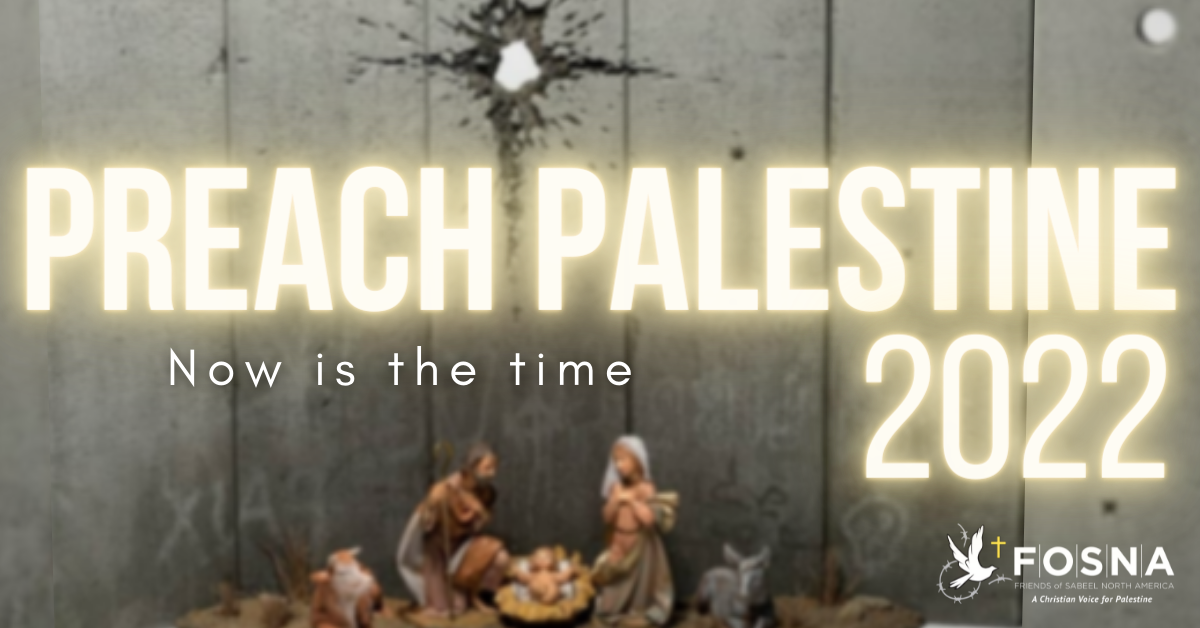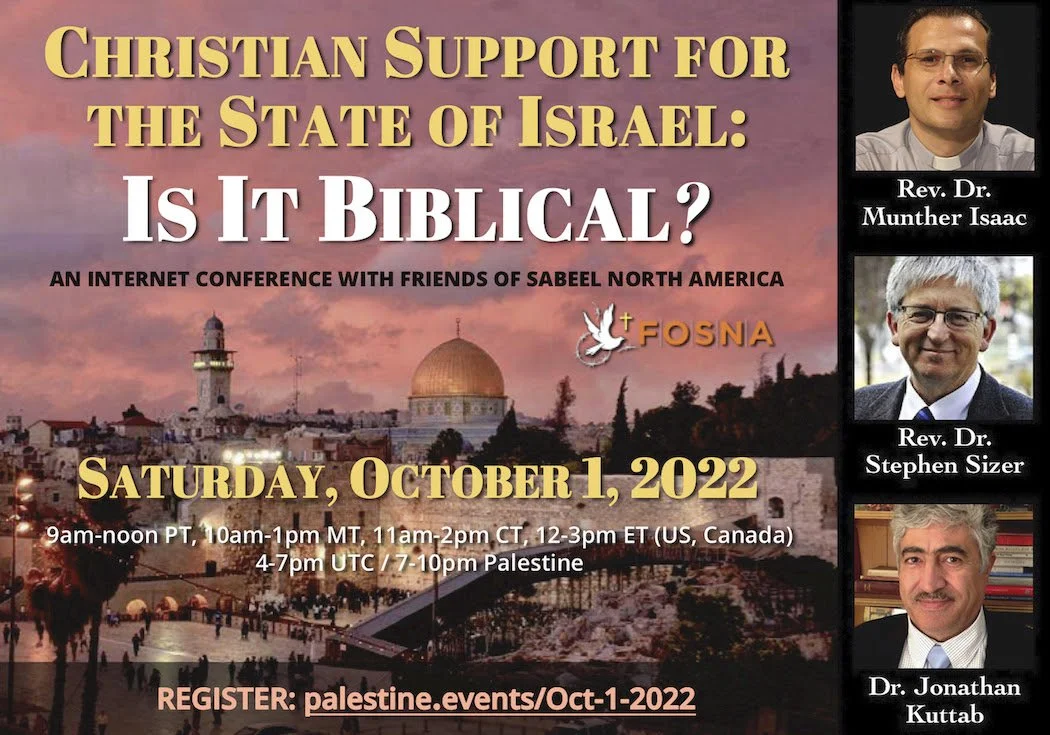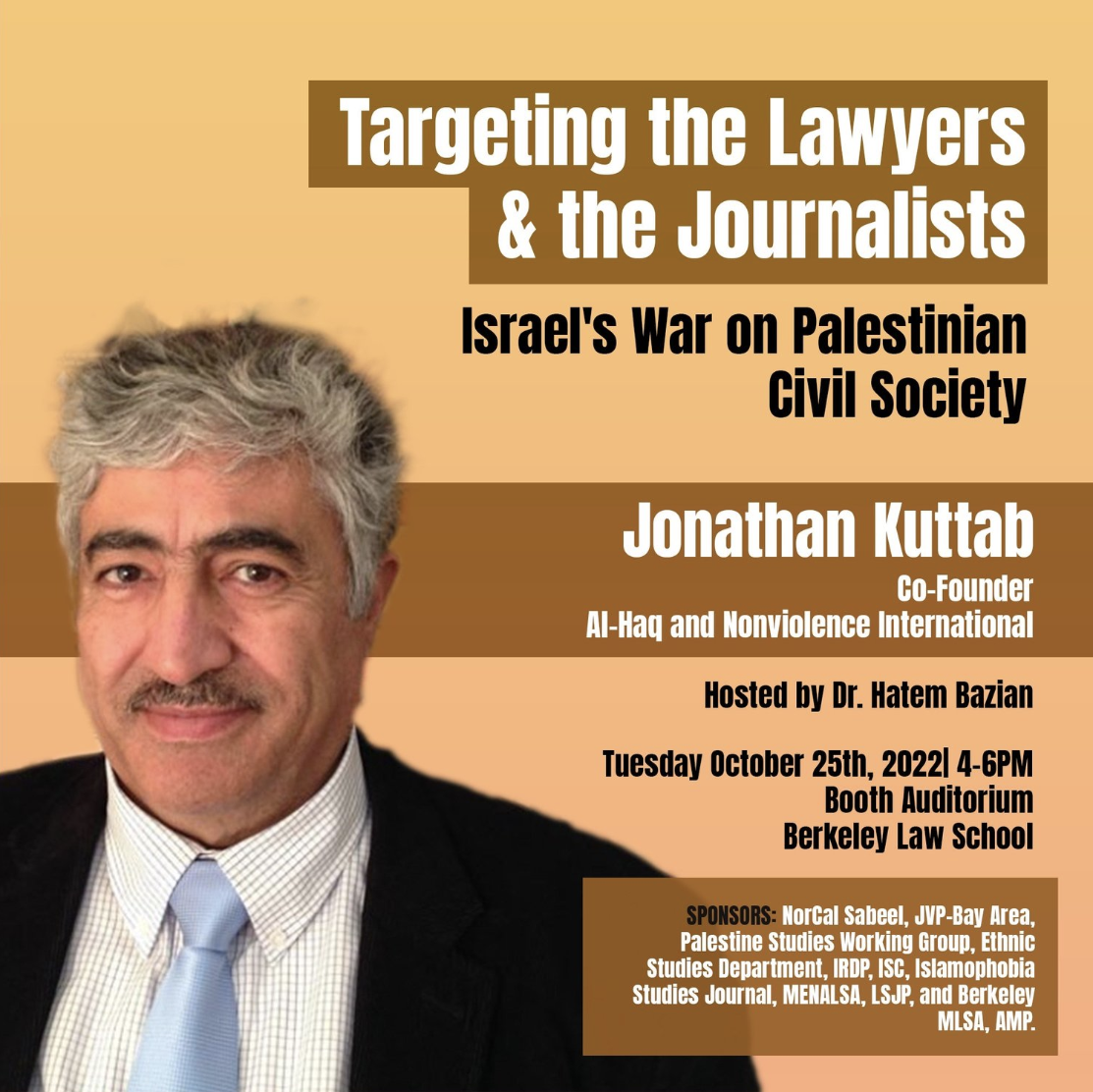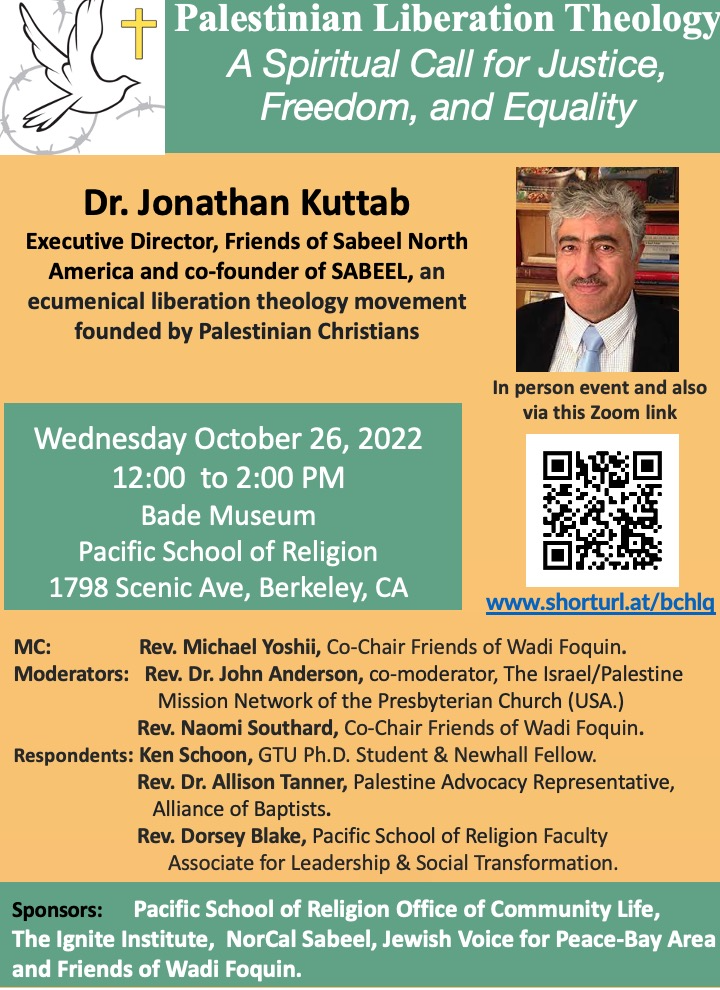A Mint Sprig and the Right of Return
by Jonathan Kuttab
We recently had a visit from our relative, Georgette Fattaleh, and her son Nadeem. As we reminisced about the past and caught up on their news, I proudly served them some homemade mint iced tea, with fresh mint from my own recently planted garden.
Nadeem then told me that when they had to flee their home in West Jerusalem, during the Nakba of 1948, they took with them a sprig of mint from their garden, which they then planted in a used ghee tin can and transferred to a garden in their temporary home in Amman. As they struggled through life and made their careers in Amman, Kuwait, the Gulf, and eventually the US, their family always carried and replanted mint from that sprig, reminding them of their home in Jerusalem and of their desire to return.
Georgette is a remarkable woman. She is now 88, in excellent health as she swims daily before going to work. She is still an active pharmacist in Amman. After exile, she had insisted on continuing her education in Damascus and was one of a very few Palestinian women to obtain her college degree in pharmacology and start with her husband a famous pharmacy in Jebel Waibdeh in Amman, which is still functioning today. She paid her way through college by tutoring rich kids in math and chemistry and had the temerity to demand five Syrian Lira per lesson (“Why, even the male teachers do not get that much!” complained one mother.)
Nadeem became a successful engineer, supervising the manufacture of parts for jet airplanes at the Boeing Corporation in Seattle. Osamah, another son, is a successful entrepreneur and business consultant in Jordan and the Gulf. Their entire family has struggled over many years in different countries, but they always maintained their memory of Palestine and of their home in Jerusalem. Somehow, they also kept their mint plant alive. They use it with tea, salads, tabouleh, and for garnishing different dishes. They enjoy its fragrant smell and flavor. Nadeem told me that his son, Yazan, in Colorado would love to give me a sprig from it when I visit him during my upcoming FOSNA trip to Colorado next week.
Like other Palestinians who hold tightly to the keys of their original homes, as they languish in refugee camps in Lebanon, Jordan, Syria, and Gaza, or indeed as they forge out successful careers and lives in different parts of the world, they hang on to their dreams, memories, and desire to return home. This yearning is not a nostalgic myth, but a part of their present-day reality. It may well be that most members of the Fattaleh family would be quite happy continuing to live the lives they have carved out for themselves in different parts of the world, but their desire to be connected, to visit, and, yes, to return if they so chose to Palestine is a valid and understandable right and key part of their identity.
What appalls me is that the Palestinian right of return is considered by some to be controversial, and Palestinians are often urged or even required to drop that demand if they want to have any prospect of peace with the state of Israel. I do not understand this: when the world seems to fully understand and sympathize with a need for recognizing a right of return to Palestine for Jews after 2000 years of exile, but they do not accept the Palestinian right of return. Can someone please explain to me, on any moral, ethical, political, or historical grounds, why Jews can claim such a right after 2000 years of exile when Palestinians like the Fattalehs are denied the right to return to their actual homes and land on which they lived within current living memory?
From its early days, Zionism has insisted on an absolute right for any Jew who wished to “return” to Palestine, regardless of the impact such a “return” would have on the indigenous inhabitants of the land. They resisted any quotas or limitations, and when they established their state this right of return was enshrined in its Basic Laws. It is matched by their refusal to allow Palestinians the ability to return or even to visit their homes and homeland. Justice would demand that, at the very least, an equal right should be guaranteed to Palestinians and their descendants. The current refusal to allow Palestinians the right to return is based on a desire for exclusive control over the land, on behalf of Jews and Jews alone. It is enforced by Israel’s refusal to allow Palestinians the ability to return and by many obstacles preventing them from even visiting their homes and homeland, even in the Occupied Territories. Refusing to acknowledge a Palestinian right of return is both unfair, unjust, and immoral. Ultimately, it will fail. Palestinians will always carry their memory of and attachment to their homeland. An old key, a land deed, or even just a sprig of mint tells the whole story.
Take Action!
Preach Palestine is back!
Friends of Sabeel North America is calling on Christian leaders across the U.S. to commit their congregations to Preach Palestine this Advent season.
Be it an entire service or a single prayer, we are asking you to once again Preach Palestine and lift up the Palestinian people such that they would come to experience the joy, justice, and peace of Christ's liberating reign, as a very real light in the present darkness.
Now Is the Time!
Can you commit your congregation to Preach Palestine this Advent season?
Get Involved!
FOSNA has kicked off its Fall Tour! We invite you to join us in the following events:
October 1: Webinar
Christian Support for the State of Israel: Is it Biblical?
Hosted by FOSNA LA/OC
Join us on October 1st to discover the historical roots and far-reaching influence of Christian Zionism; explore with biblical scholars fundamental errors in the use of scripture to support this doctrine.
Hear from clergy in Bethlehem about the impact of this theology on the ground in the Holy Land and particularly how it affects the lives of the Christian community in Israel and Palestine.
In this conference, we will consider how we can respond to Christian Zionist theology and bring love-inspired, biblically-based teaching and action to our congregations and communities.
October 2: Minneapolis
Mizna's Twin Cities Arab Film Festival (TCAFF)
FOSNA is proud to sponsor the Palestinian documentary Foragers (2022) Directed by Jumana Manna at this year's Twin Cities Arab Film Festival, held by Mizna. Foragers depicts the dramas around the practice of foraging for wild edible plants in Palestine/Israel with wry humor and a meditative pace. Rent the film online from September 29th - October 2nd or catch the screening Sunday, Oct 2nd, 1:00 PM @ The Trylon Cinema, Minneapolis, Minnesota.
Hosted and Facilitated by Friends of Sabeel Colorado:
October 6: Denver
Israel-Palestine: A Conversation with Jonathan Kuttab
University of Denver
Margery Reed Hall 113 (Reiman Theatre), 5:00pm
Sponsored by the Center for Middle East Studies
October 7: Denver
Faith, Hope, and Love: The Work and Life of Palestinian Christians
Iliff School of Theology is pleased to welcome Dr. Jonathan Kuttab, Executive Director, Friends of Sabeel North America for an in-person roundtable discussion on Friday, October 7th from 12 – 2 PM in Shattuck Hall on the Iliff campus. Dr. Kuttab will discuss topics ranging from nonviolent peacemaking, Palestinian human rights, Palestinian Liberation Theology, and a One State solution as the way forward for justice and peace in the Holy Land. Bring a brown bag lunch if you wish and we will provide beverages. Please confirm your attendance by emailing cwarejoseph@iliff.edu. Please also provide your proof of COVID vaccination to HumanResources@iliff.edu. All are welcome!
Friday, October 7th from 12 – 2 PM
Shattuck Hall, Iliff School of Theology
October 7: Fort Collins
Palestine: A First-Person Perspective
Heart of the Rockies Christian Church is hosting a gathering with Jonathan Kuttab, well-known international human rights attorney, Friday evening, October 7, 6:30-8 p.m. Presentation and discussion with members of the church and community activists who are involved with Palestine justice work. Come and share in the conversation.
Friday, Oct 7, 6-8 pm
Heart of the Rockies Christian Church, Fort Collins
October 8: Denver
Together for Palestine
Together for Palestine is a free festival put on by the Center for Freedom and Justice-Colorado. The festival celebrating Palestinian culture and history, will be a space to listen, learn and experience the people of the Holy Land. Speakers include: Samia Halaby, Jonathan Kuttab, Iman Jodeh, Bessan Adi, and Joel Northam.
There will be:
Face painting and Henna tattoos
Debka performances
Artwork
Historical artifacts including pottery, jewelry, costumes, hand embroidery, olive wood carvings and glass
A Bedouin tent for hanging out in and taking pictures
Imported food and handwork products, books and apparel items for sale
Food provided by The Jerusalem Cafe and The Phoenician Grill
11am - 5pm
23 Lincoln Street
South Broadway Christian Church
Denver, Colorado
Hosted and Facilitated by SABEEL-Hawai'i:
October 15: Honolulu
Palestine: A New Vision for Peace with Justice
SABEEL-Hawai’i presents: Debunking the Two-State Solution with Jonathan Kuttab
Cosponsored by: SFJP@UH, JVP-Hawai’i, Ka Lāhui Hawai’i Kōmike Kalai’āina
Saturday, October 15th 6:30pm - 8:00pm
St. Andrew's Episcopal Cathedral
229 Queen Emma Square, Honolulu Hawai'i
October 16: Honolulu
Being a Christian Voice for Palestine: The Past, Present & Future of Friends of Sabeel North America
St. Clements Episcopal Church invites you to come learn about the mission, work, and impact of Friends of Sabeel North America. Join FOSNA Executive Director Jonathan Kuttab for two services. Join us at 8:00am or 10:15am with breakfast in-between.
Sunday, October 8:00am & 10:15am
St. Clement's Episcopal Church, Honolulu
October 21: Honolulu
The Palestinian-Israeli Conflict from a Christian Palestinian Perspective
Afternoon workshop for Education Day–Peace & Reconciliation at Convention 54: the Annual Meeting of the Episcopal Diocese of Hawai'i
12:30 pm
'Iolani School, Honolulu Hawai'i
Hosted and Facilitated by NorCal Sabeel:
October 25: Berkeley
Targeting the Lawyers & Journalists: Israel’s War on Civil Society
With Jonathan Kuttab, co-founder of Al-Haq and Nonviolence International and Executive Director of Friends of Sabeel North America
Join us at Berkeley Law School in Booth Auditorium, October 25th at 4:00pm or watch it live online.
Hosted by Dr. Hatem Bazian, sponsored by NorCal Sabeel, JVP-Bay Area, Palestine Studies Working Group, Ethnic Studies Department, IROP, ISC, Islamophobia Studies Journal, MENALSA, LSJP, Berkeley MLSA, AMPR.
October 26: Berkeley
Palestinian Liberation Theology: A Spiritual Call for Justice, Freedom and Equality
Jonathan Kuttab will be speaking on Palestinian Liberation Theology at the Pacific School of Religion on Wednesday, October 26th at 12 noon. Because of limited space, and provision of light refreshments for lunch, we would appreciate your RSVP to Hassan Fouda at SabeelTOL@gmail.com.
Graduate Theology Union
Bade Museum
Pacific School of Religion
1798 Scenic Ave, Berkeley, CA
12pm - 2pm
November 26: Palestine
Visit the Holy Land With Us!
This Advent season, join FOSNA in the Holy Land to commemorate the International Day of Solidarity with the Palestinian People and bear witness to apartheid in action.
Sabeel Ecumenical Liberation Theology Center, Jerusalem:
Weekly
Sabeel Prayer Service. Join Sabeel every Thursday (6pm Jerusalem) for online Bible Study, discussion, and prayer. Examine scripture in light of the ongoing realities confronting the Palestinian Church and the pursuit of Palestinian liberation.
Wave of Prayer. Subscribe to receive Sabeel's Wave of Prayer, enabling friends of Sabeel around the world to pray over issues of critical concern to the Holy Land on a weekly basis.
Kumi Now! (Week 39) Bedouin Rights. Refugee Bedouin communities in Palestine and Israel have experienced decades of home demolitions and forcible transfers along with virtually non-existent services. In September 2011, Israel adopted the Prawer Plan. One of its goals was to relocate 40,000 to 70,000 Negev Bedouin from their chosen homes to government-mandated lands. Here’s what you need to know about Bedouin villages such as Al Khan al-Ahmar and what you can do so that together we can rise up.














